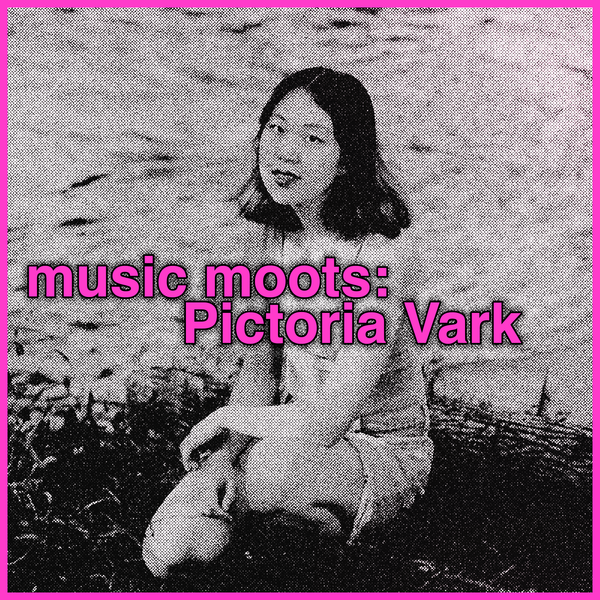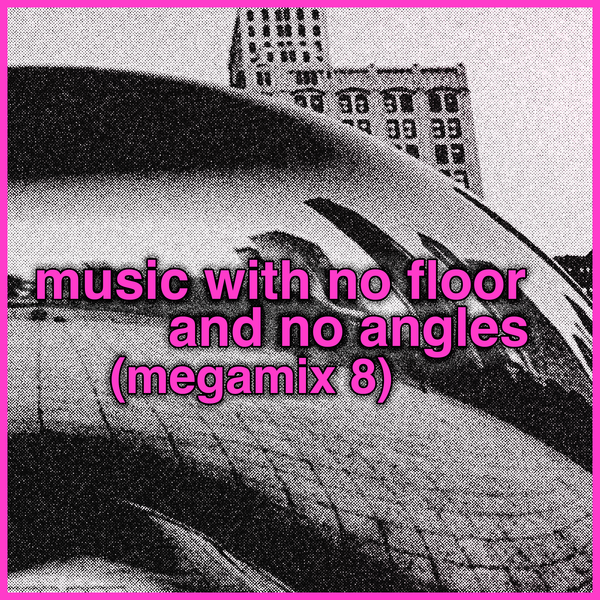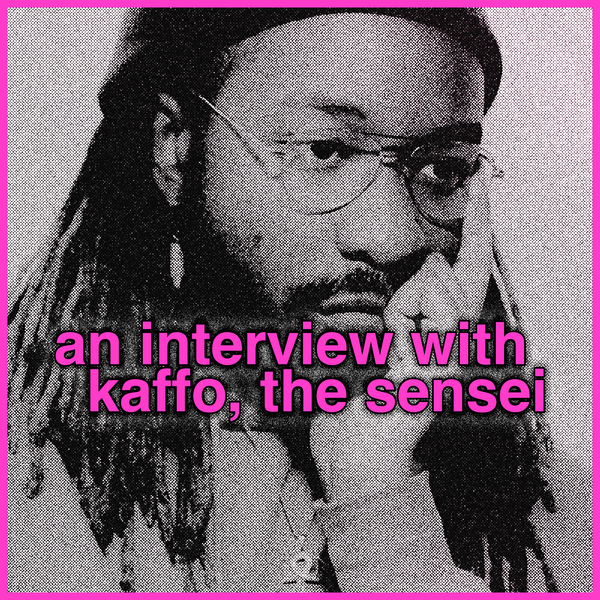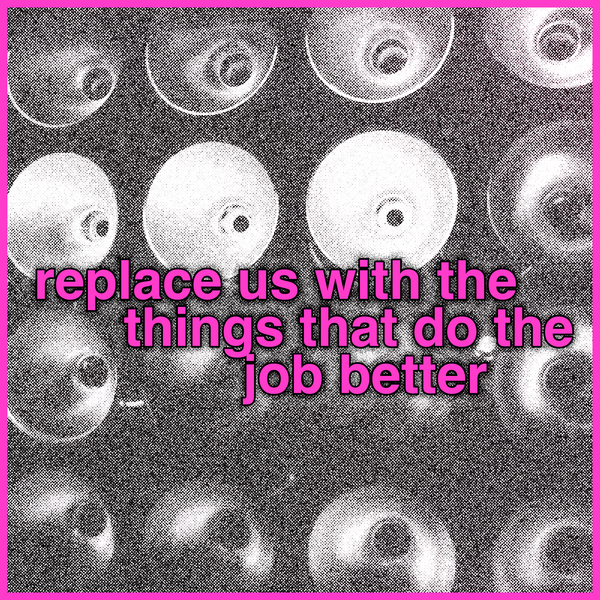Three Music Thingz with Animal Byproducts
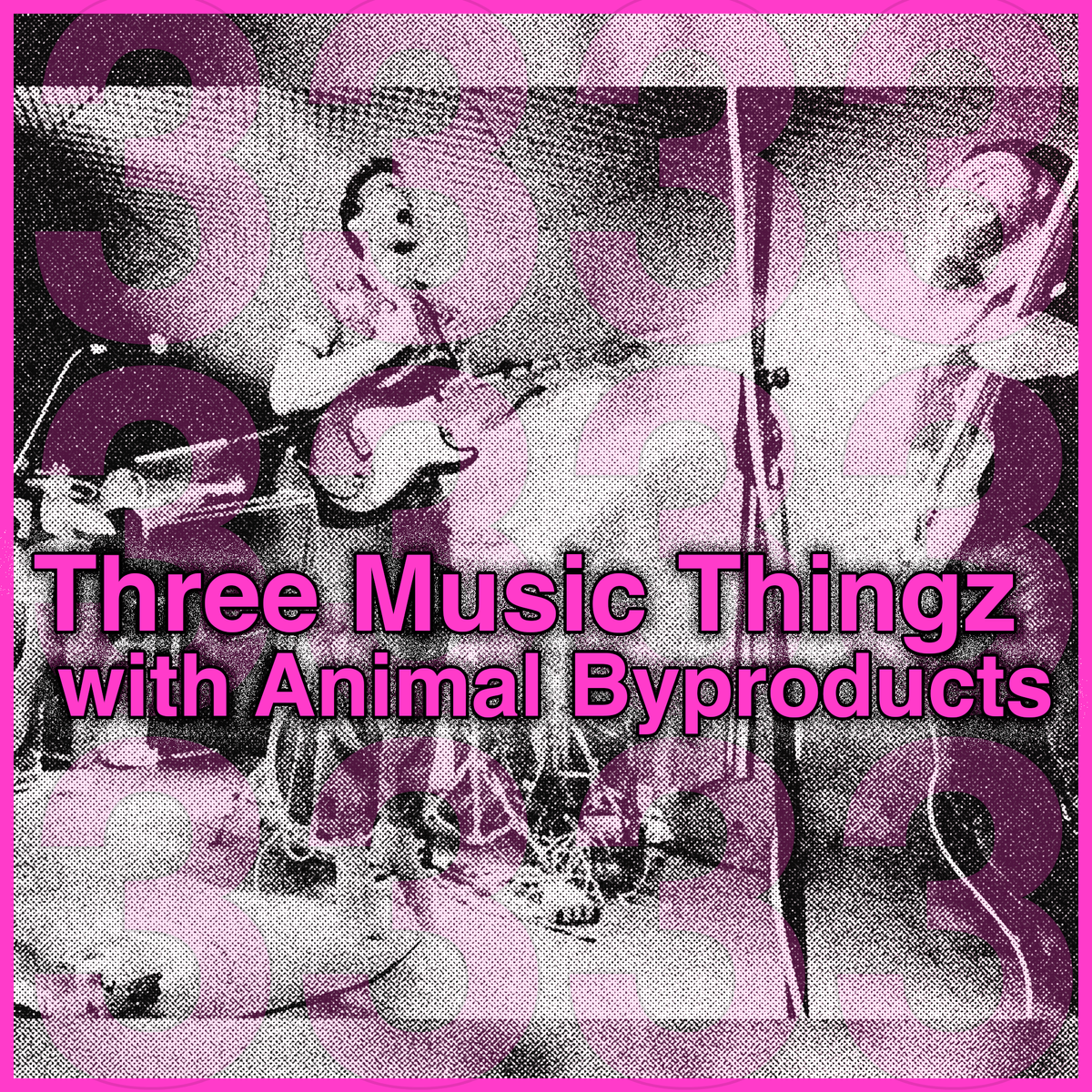
Golly gee, it's another rendition of Three Music Thingz, the blogseries where I ask musicians for three thingz that are essential to their music-making.
Today we have Animal Byproducts! A four-piece from Manchester and Leeds making, in their words, "twiddly trumpet punk," the band just put out an album called Groundwork on UK DIY label INiiT Records. Groundwork contains nine tracks of dynamic and candid rock tunes, and it doesn't just ponder the age-old quandary of how to be both a worker and human being—it runs a thrilling cavalry charge (complete with brass fanfare) right over it.

Work comes in many forms on the album. Opening track "The Peter Principle" sarcastically alludes to the sociologist Laurence J. Peter's 'every employee in a hierarchy rises to their level of incompetence' concept of management, using a volley of words that start with the letter P as plosive ammunition. "Cig Break," on the other hand, portrays a pause for a cigarette as something destructive but life-affirming, with singer Joe Molloy wringing mordant joy out of the lyrics: "I have squatted beneath this air vent to smoke a thousand times...as time ticks by / I find that I / I am alive."
And the title track (the final song on the album) depicts work as a stint of agricultural activity—planting, cultivating, dealing with weather, fighting off pests, harvesting, preserving, and enjoying ("Take it all home / Have it for supper / All on your own / Or maybe with mates")—frantic enough to match the unbridled punk frenzy of the instrumentation. Labor is hard, Groundwork suggests, and it might make you feel nuts, but it can be worth it if you have friends to share your bounty with.
That energy matches the DIY mission statement in Groundwork's EPK, which includes a goal "to play 10 gigs a year with trusted friends and peers" and a pledge to "consciously spurn the attention-economy-infused hellscape of contemporary music promotion by instead simply playing and occasionally talking about playing music." Hell yes...I love.
Three members of Animal Byproducts—Joe Molloy (vocals/guitars), Josh Molloy (brass/vocals), and Richard Brindle (bass) (Andy 'Tet' Teal plays the drums)—shared three great thingz with the blog today...please read...
- Thursday nights
Like most people who play in bands, all four of us work full-time outside the music industry, so between employment and other commitments (namely our wonderful partners, pets, pals and passions), we don’t have a huge amount of time to pen, practice and produce music.
We don’t practice every Thursday night, but they are a mutually available slot across diaries that we endeavour to keep free for band. Beyond a chance to rehearse, Thursday nights are also a hang-out, jam, business meeting and group therapy all rolled into one ritual. They keep us sane in the winter and smiling in the summer.
We think it’s really important to keep band as sustainable as possible for ourselves—it’s better to sizzle on than burn out in our opinion. We don’t really have any ambitions as a band beyond making interesting music, having fun, and doing it for as long as possible. For us, band doesn’t really have a destination, it’s just another journey in life’s rich tapestry.
This does mean at times that we struggle with the whole “being a band” thing: booking tours, releasing music, making moves on social media etc. But we are lucky enough to have some very patient friends who help us out (you know exactly who you are), and between us we usually manage to get things over the line in the end.
In all bands, the band-mate relationship is a curious one - simultaneously best pals (certainly in our case) and part-time co-workers (in all). It paves the foundation for collaboration, creativity and the courage to trust each other. Without it, there’s no albums, no festivals, and none of the unforgettable experiences that are the joy of being in a band. And for us, it all begins by putting in the hours on Thursday nights. — Rich - DIY Ethics
We believe playing music with your friends is almost always fun and worth doing. But we recognise that people's drive to make and share their art can lead to powerlessness at the hands of an 'industry' which seeks to exploit or alienate them from their work, or to make the possibility of them acting with principle feel remote and unreachable. We have seen this recently with SXSW and festivals being sponsored by Barclay's—many bands feel unable to take a principled stand to boycott these events due to the power structures accumulated around them—labels, patrons etc. Being swept up in this model is a political choice, and one which is unacceptable to us. We instead attempt to work from DIY principles and ethics.
DIY ethics in music are of course a loose and shifting set of ideas. Conceptually, though, there actually isn't all that much to it other than mutual aid, collectivism and a mistrust of rentiers and profit seekers. Some of our peers have the logistical chops to prolifically organise in this spirit. We don't, but we make the best of it.
Let's take the example of gigs. In a normal year, our goal is to play 10-15 good gigs. And a good gig, for us, is one where:
• the organisers are facilitating creativity not for the accumulation of profit or power, but because they quite like the acts they book.
• inequalities in power and voice that are an inevitable result of platforming people or putting on events are minimised.
• the historic and ongoing marginalisation of various groups in society and the scene is acknowledged and addressed by booking diverse lineups.
Seeing DIY ethics in practice is powerful. We have seen normal people produce the most mind-blowing acts of kindness, generosity, musicianship, empathy, power, poise and strength whilst working from these principles, consciously or otherwise. You see how the scene sustains itself in moments like this.
DIY has always been a misnomer, as we know it is actually a kind of collective consciousness. We are happy to cede some creative and logistical control to people who recognise this. When we give and receive trust in this spirit, we are almost always rewarded by the result!
In short, we feel consistently and immensely proud to be part of the process of DIY Punk, and that people we trust keep thinking of us as worthy of it. Long live the scene! — Joe - The audience
Music is for sharing with other people. This is known. It is, among many other things, a way of communicating ideas and emotions to others around us. Live music, where you can see all the details of the performance, allows you to engage with the music in ways that go beyond a recorded track. I love watching live music. And I love performing it for others to see.
I have played music of some kind for almost my whole life—from about the age of 10 I have been in choirs, brass bands, orchestras, and now a punk band. And one of the main motivations I have always had for even practicing has been the performance. Working together with other people to make a wonderful din for an appreciative audience has always been something I can completely lose myself in.
While I can't control the way anyone in the audience responds to the music, the things they feel about it, the meaning they take from it, or even whether they like it or not, I can always try to make music that I am proud of. I can do my part, and use any skill I may or may not have to perform the version of the music that I want to, to convey what I want as best I can, and to hopefully form a connection with those listening. There is no substitute for live music, and I want mine to be as good as I can make it. — Josh
Thank you Animal Byproducts! Listen to Groundwork and check out their link aggregation. And thanks for reading I Enjoy Music. If you like it, tell a friend. Read it on your next cig break.


